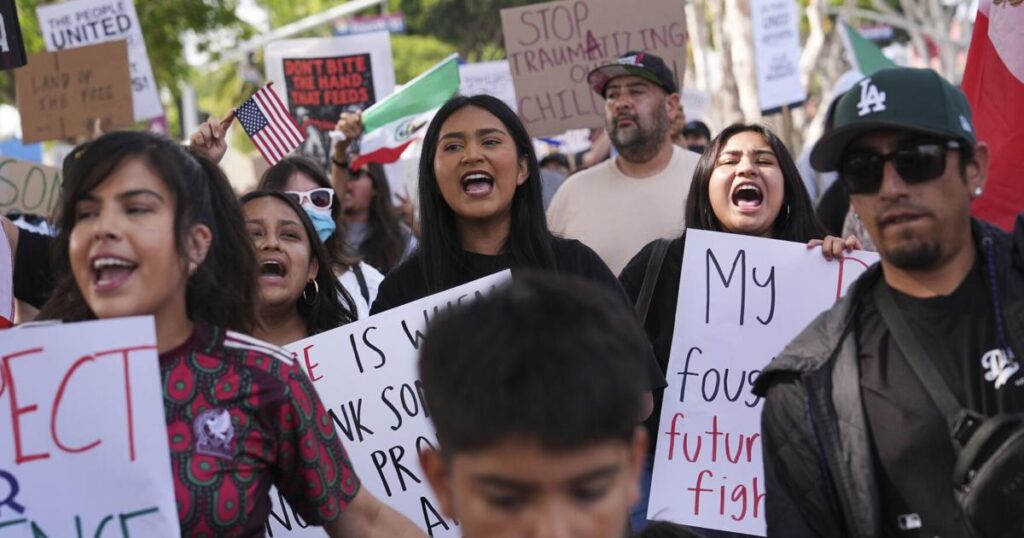
A federal judge has ordered the Trump administration to cease indiscriminate immigration stops and arrests across seven California counties, including Los Angeles. This decision follows a lawsuit filed by immigrant advocacy groups, which accused the administration of targeting individuals based on race during its immigration enforcement operations. The plaintiffs in the case include three detained immigrants and two U.S. citizens, one of whom was held despite presenting identification to agents.
The lawsuit was heard in the U.S. District Court, where the plaintiffs sought an injunction against what they described as unconstitutional tactics employed during immigration raids. They allege that immigration officials have engaged in warrantless arrests and have denied detainees access to legal counsel at an immigration detention facility in downtown Los Angeles.
In her ruling, Judge Maame E. Frimpong also issued a separate order to prevent the federal government from restricting attorney access at the detention center. This ruling came shortly after a hearing in which advocacy groups argued that the government’s actions violated the Fourth and Fifth Amendments of the U.S. Constitution.
Tensions have escalated in Southern California, particularly among immigrant and Latino communities, as the Trump administration has intensified its enforcement actions. Recent operations have targeted locations such as car washes and Home Depot parking lots, prompting widespread protests. Tens of thousands of individuals participated in rallies against the raids and the deployment of the National Guard and Marines in the region.
The order from Judge Frimpong also applies to Ventura County, where federal agents detained multiple workers at a cannabis farm, leading to clashes with protesters. The American Civil Liberties Union (ACLU) has stated that the recent wave of immigration enforcement is driven by an arbitrary arrest quota and relies on broad racial stereotypes.
According to court documents, the three day laborers who are plaintiffs in the lawsuit were detained solely because they were Latino and dressed in construction attire. ACLU attorney Mohammad Tajsar highlighted the case of Brian Gavidia, a U.S. citizen who was reportedly assaulted solely for being Latino while working in a predominantly Hispanic neighborhood.
In defense of the government, attorney Sean Skedzielewski argued that federal immigration agents do not consider race in their arrests. He stated that their operations are based on a comprehensive assessment of circumstances, which may include prior surveillance and field interactions. Skedzielewski emphasized that the Department of Homeland Security has policies and training in place to ensure compliance with constitutional standards.
The situation has also raised concerns regarding access to legal representation for those detained. Lawyers from the Immigrant Defenders Law Center have reported being denied access to the detention facility in downtown Los Angeles on several occasions since June. In one incident on June 7, 2023, attorneys attempted to inform detainees of their rights but were met with resistance from government drivers and the use of chemical munitions.
The ACLU has raised alarms over detainees not being provided adequate access to telephones or legal assistance, along with insufficient food and bedding at the facility, leading to coercive conditions that pressure individuals to sign deportation agreements without consulting legal counsel.
Support for the plaintiffs’ case has also come from the attorneys general of 18 Democratic states, who filed briefs in backing the injunctions sought in this case. Previously, a federal judge had already issued a preliminary injunction in April, restricting U.S. Customs and Border Protection agents from making warrantless arrests in a large part of eastern California.
As this legal battle unfolds, the implications for immigration enforcement and civil rights in California remain significant, with ongoing concerns about the treatment of immigrant communities amid heightened scrutiny and enforcement actions.





